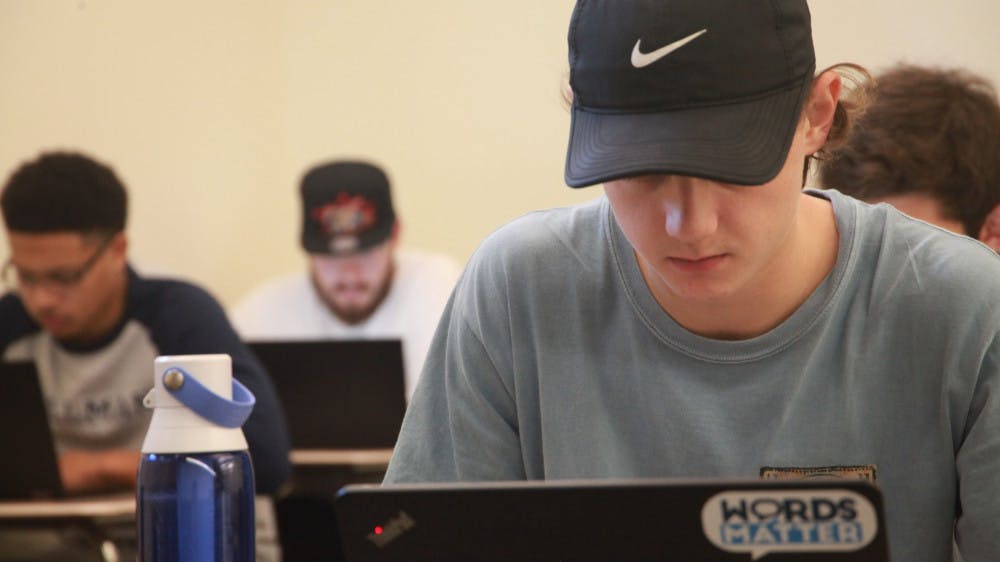The IT department implemented Microsoft Teams into every class this semester, making it the standard for each course.
Microsoft Teams is a program that allows groups of students to collaborate on projects and other class assignments. It is comparable to other apps such as Slack. However, Teams takes crucial components of online collaboration such as email, file sharing and group discussion and fold it all into one streamlined program.
Milan Stanic, the director of IT Communications, talked about what inspired the IT department to make this change.
“On Aug. 1, Microsoft announced it will retire Skype for Business and replace it with Microsoft Teams as the go-to product for meetings and collaboration,” Stanic said. “At Seton Hall, we strive to utilize the latest technology available and Teams expands on the features available in Skype for Business while enabling our faculty and students to communicate more effectively.”

Stanic said he hopes the use of a unified communications platform will allow faculty and students to focus on learning and not figuring out technology.
Stanic also explained how the implementation of Microsoft Teams will benefit both teachers and students.
“We hope that the use of a unified communications platform will allow our faculty and our students to focus on learning, not figuring out technology,” he said. “Teams combine chat, video, file storage, and application integration with the existing software and hardware on campus.”
Stanic noted some benefits of using Microsoft Teams, such as student and faculty collaboration through Office 365 apps, which are already installed on Seton Hall laptops.
While professors will have to get used to the new program, they are not the only ones. Student leaders across campus use programs like this to communicate within their various clubs and organizations.
Brian Sumereau, a junior finance and IT major, explained his experience using Microsoft Teams and detailed the advantages.
“In the past, people have used a ton of different sites such as Slack, GroupMe, OneDrive and even Dropbox,” Sumereau said. “I think it’s easier to use Teams because of that centralization. Teams will also automatically update all files to the latest version of the file, so it eliminates a lot of the confusion that comes with sending around multiple attachments.”
Alyssa Futa, a junior diplomacy major, explained her experiences communicating with various people on campus. She said that many organizations use apps, such as GroupMe, Slack and Facebook.
Futa noted that the Women of Diplomacy Leadership Program and Diversity and Inclusion Committee utilize Microsoft Teams. She explained how Microsoft Teams stacked up against other programs.
“Apps such as GroupMe do not offer the same features such as channels within an organization, which is a feature that has been useful for project and event planning,” Futa said. “I think that Teams could be useful in a classroom setting and in organizations because of the multitude of features, but there is a bit of a learning curve when using it.”
Alexander Krukar can be reached at alexander.krukar@student.shu. edu.





